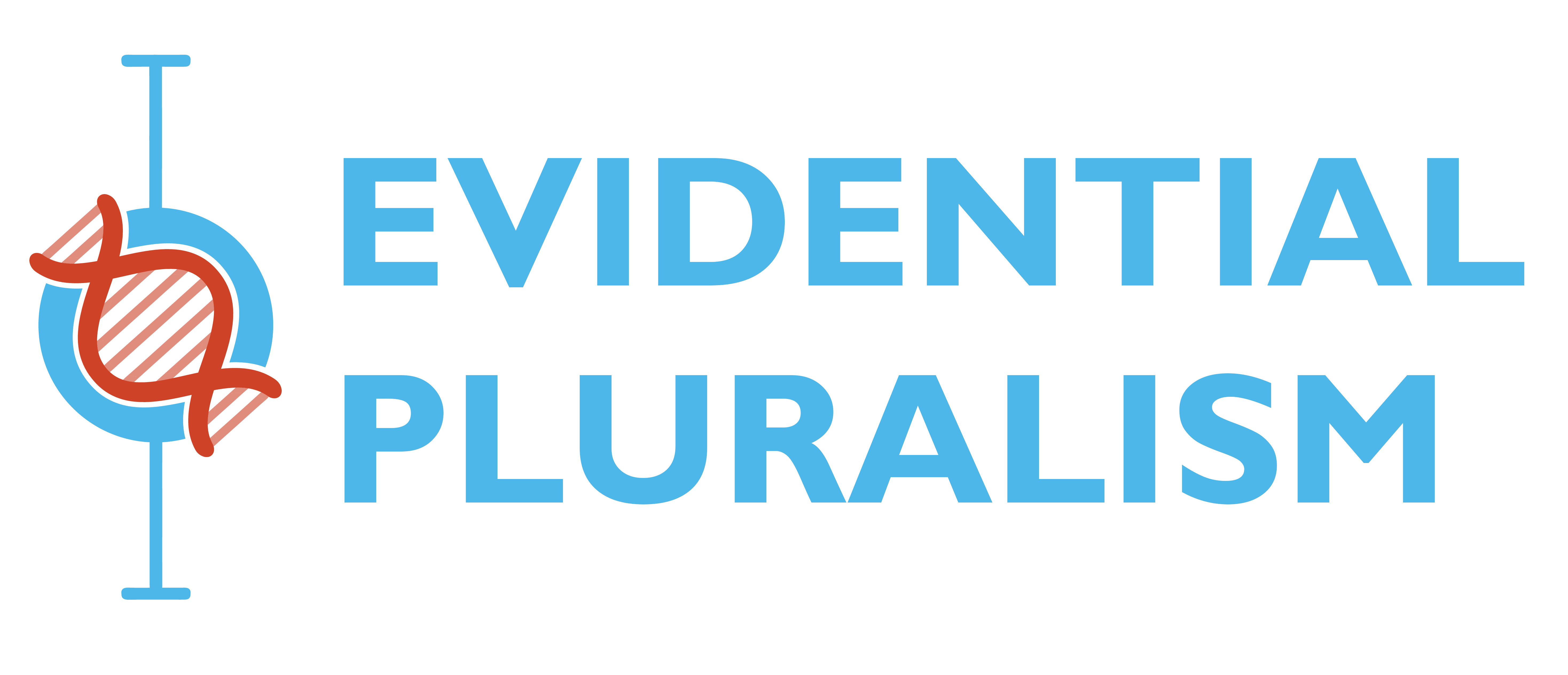Evidential Pluralism is a theory about the epistemology of causation. It holds that:
- establishing causation normally requires establishing that the putative cause and effect are both appropriately correlated and connected by an appropriate mechanism (‘object pluralism’);
- so when assessing causation, one should evaluate both association studies and mechanistic studies, where available (‘study pluralism’).
For a quick introduction to Evidential Pluralism and its applications, see
Focus on Evidential Pluralism, The Reasoner 15(6), 2021. ![]()
![]()
For a recent introductory talk on Evidential Pluralism, see
Video recording. Jon Williamson: A New Framework for Causal Inference in the Health and Social Sciences, National Institutes of Health. 16 November 2023.
Evidential Pluralism is a collaborative research programme. Please get in touch if you’d like to be involved.
Evidential Pluralism applied to the social sciences
Joe Jones, Alexandra Trofimov, Michael Wilde & Jon Williamson: Integrating Heterogeneous Evidence using Evidential Pluralism, Centre for Reasoning report 23/01, 2023, ![]()
![]()
Yafeng Shan and Jon Williamson: Applying Evidential Pluralism to the social sciences, European Journal for the Philosophy of Science 11(4):96, 2021. ![]()
![]()
![]() . doi: 10.1007/s13194-021-00415-z
. doi: 10.1007/s13194-021-00415-z
Yafeng Shan and Jon Williamson: Evidential Pluralism in the Social Sciences, Routledge 2023.
For more detail see the research projects
- EBL+: New philosophical foundations for evidence-based law (Leverhulme Trust 2023-26)
- Evidential pluralism in the social sciences (Leverhulme Trust 2019-22)
Recent papers on this approach include:
- Saúl Pérez-González, Evidence of mechanisms in evidence-based policy, Studies in History and Philosophy of Science 103:95-104, 2024. doi: 10.1016/j.shpsa.2023.11.006
- Duna Sabri: Rethinking causality and inequality in students’ degree outcomes, British Journal of Sociology of Education 44(3):520-538, 2023. doi: 10.1080/01425692.2023.2179017
Evidential Pluralism applied to medicine (EBM+) 
For some motivation, see
Jon Williamson: Establishing causal claims in medicine, International Studies in the Philosophy of Science 32(1): 33-61, 2019. ![]()
![]()
![]() doi: 10.1080/02698595.2019.1630927
doi: 10.1080/02698595.2019.1630927
For overviews of the EBM+ programme, see
Michael Wilde: The EBM+ Movement, The International Journal of Biostatistics 19(2): 283-293, 2023. ![]()
![]() doi: 10.1515/ijb-2022-0126
doi: 10.1515/ijb-2022-0126
Veli-Pekka Parkkinen, Christian Wallmann, Michael Wilde, Brendan Clarke, Phyllis Illari, Michael P. Kelly, Charles Norell, Federica Russo, Beth Shaw and Jon Williamson: Evaluating evidence of mechanisms in medicine: Principles and procedures, Springer, 2018. ![]()
![]()
Some recent papers on EBM+ include:
- Andrew Park, Daniel Steel & Elicia Maine, Evidence-based Medicine and Mechanistic Evidence: The Case of the Failed Rollout of Efavirenz in Zimbabwe, The Journal of Medicine and Philosophy: A Forum for Bioethics and Philosophy of Medicine 48(4): 348-358, 2023; doi: 10.1093/jmp/jhad019
- , et al.: Adapt or die: how the pandemic made the shift from EBM to EBM+ more urgent,
- Mariusz Maziarz & Adrian Stencel, The failure of drug repurposing for COVID‑19 as an effect of excessive hypothesis testing and weak mechanistic evidence, History and Philosophy of the Life Sciences 44:47. doi: 10.1007/s40656-022-00532-9
- Daniel Auker-Howlett and Jon Williamson: Vaccination uptake interventions: an EBM+ approach, Argumenta 7(1): 79-96, 2021.

 . doi: 10.14275/2465-2334/202113.auk
. doi: 10.14275/2465-2334/202113.auk - Jeffrey K. Aronson, Daniel Auker-Howlett, Virginia Ghiara, Michael P. Kelly and Jon Williamson: The use of mechanistic reasoning in assessing coronavirus interventions, Journal of Evaluation in Clinical Practice 27(3): 684-693, 2021.

 . doi: 10.1111/jep.13438
. doi: 10.1111/jep.13438 - Jon Williamson: The feasibility and malleability of EBM+, Theoria 36(2):191-209, 2021.


 doi: 10.1387/theoria.21244
doi: 10.1387/theoria.21244
For more detail, see the research projects:
-
- Evaluating evidence in medicine (AHRC 2015-18)
- Grading evidence of mechanisms in physics and biology (Leverhulme Trust 2015-18)
- Mechanisms and the evidence hierarchy (AHRC 2012)
